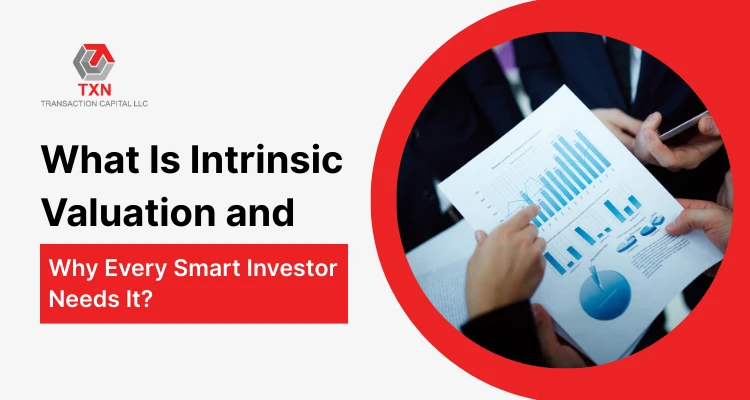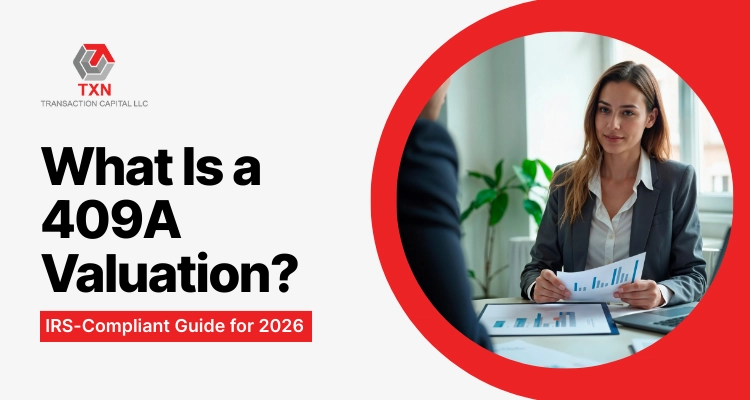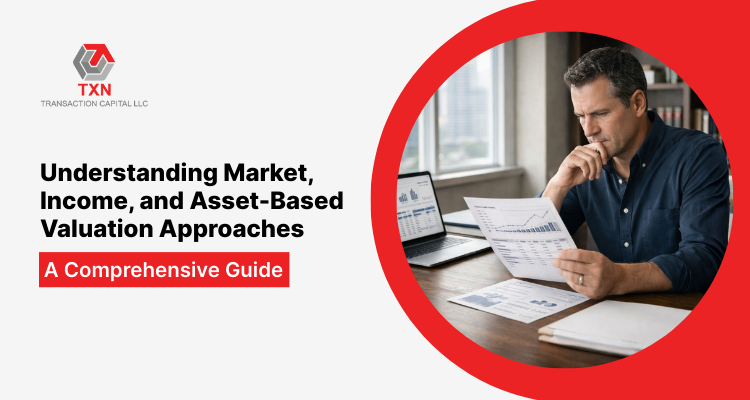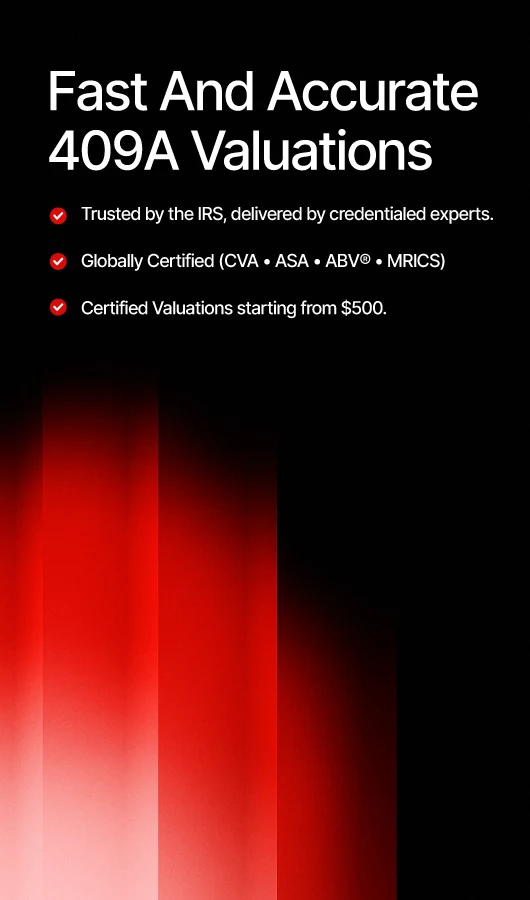What Is Intrinsic Valuation and Why Every Smart Investor Needs It?

In financial markets, prices move up and down daily, influenced by news, investor sentiment, and liquidity. But these market swings don’t always reflect a company’s true worth. For founders, CFOs, and investors, the real question is: What is the actual value of a business?
That’s where intrinsic valuation comes in. Unlike market pricing—which can be driven by hype, panic, or short-term trends—intrinsic valuation digs into fundamentals like cash flows, assets, and risks to estimate a company’s real economic value. It’s a disciplined approach that underpins smart investing, deal-making, and regulatory compliance.
This guide covers everything you need to know about intrinsic valuation: definitions, methods, real-world applications, common mistakes, and FAQs. Whether you’re scaling a startup, evaluating an acquisition, or planning capital allocation, mastering intrinsic valuation helps you make confident, informed business decisions.
What is Intrinsic Valuation and Why Does It Matter?
Think of intrinsic valuation as financial detective work. Instead of asking "What's everyone else paying?" you ask "What should this actually be worth?"
- Intrinsic value represents the genuine economic worth calculated from a company's fundamentals – cash flows, assets, growth prospects, and risk factors.
- Market value is simply what people are willing to pay right now, influenced by emotions, speculation, and short-term trends.
The magic happens when these two numbers don't match. When intrinsic value exceeds market price, you've potentially found a diamond in the rough. When market price runs way ahead of intrinsic value, it's time to be cautious.
Why Should You Care About Intrinsic Business Valuation?
Smart money follows fundamentals, not headlines. Here's why intrinsic valuation matters more than ever:
- Investment Discipline: It keeps you focused on what actually drives value instead of getting caught up in market hype or panic selling.
- Strategic Negotiations: Whether you're raising capital, selling your business, or acquiring competitors, knowing intrinsic value gives you a solid foundation for negotiations.
- Regulatory Compliance: For 409A valuations, estate planning, and financial reporting, intrinsic methods provide the audit-defensible foundation required by the IRS and SEC.
- Capital Allocation Excellence: CFOs use intrinsic valuation to make smarter decisions about reinvestment, dividends, or debt management.
What Are the Main Methods for Calculating Intrinsic Value?
Discounted Cash Flow (DCF) Analysis: The Gold Standard
Discounted Cash Flow (DCF) analysis works on a simple principle: a company is worth the present value of all future cash it will generate for owners.
How it works: Project future free cash flows, then discount them back to today's dollars using an appropriate rate that reflects the investment's risk.
Best for: Businesses with predictable cash flows like SaaS companies, established manufacturers, or consumer goods companies.
Strength: Directly connects to economic reality – cash is king.
Watch out for: Small changes in growth assumptions or discount rates can dramatically impact results.
Real example: If a software company generates $2 million in free cash flow today, growing 20% annually for five years, and investors require a 10% return, you'd project those cash flows, add a terminal value, and discount everything back to present value.
Dividend Discount Model: Perfect for Income Investors
This approach values companies based on the dividends they pay to shareholders, plus expected growth in those payments.
Best for: Mature, dividend-paying companies like banks, utilities, or telecommunications firms.
How it works: Project future dividend payments, account for growth, and discount back to present value.
Strength: Directly tied to actual shareholder returns.
Limitation: Doesn't work for growth companies that reinvest profits instead of paying dividends.
Example: A utility company paying $3 per share in dividends, growing 3% annually, with investors requiring 7% returns, would be valued by discounting those future dividend streams.
Asset-Based Valuation: When Assets Tell the Story
Sometimes a company's value lies primarily in what it owns rather than what it earns.
Net Asset Value (NAV): Fair market value of all assets minus all liabilities equals equity value.
Best for: Asset-heavy industries like real estate, manufacturing, or natural resources.
Strength: Provides a tangible floor value and is relatively straightforward.
Weakness: Often misses intangible assets like brand value, customer relationships, or intellectual property.
Example: A manufacturing company with $100 million in equipment and real estate, minus $60 million in debt, has a baseline NAV of $40 million.
What Factors Drive a Company's Intrinsic Value?
Understanding value drivers helps you focus on what really matters:
- Growth Prospects: Revenue expansion opportunities, new product pipelines, and market expansion possibilities drive future cash flows. Companies with stronger growth potential command higher valuations due to increased earning power over time.
- Risk Profile: Business volatility, financial leverage, customer concentration, and regulatory environment directly impact valuation. Higher risk factors require greater return expectations, which reduces present value calculations in intrinsic models.
- Discount Rate: Higher risk premiums reduce calculated value while lower risk supports higher valuation multiples. The discount rate serves as the critical bridge between future cash flows and present value determinations.
- Macroeconomic Conditions: Interest rates, inflation, and competitive forces significantly affect future profitability and valuation outcomes. These external factors influence both growth assumptions and risk assessments in intrinsic valuation models.
How Do You Apply Intrinsic Valuation in Real-World Situations?
1. For Public Market Investors
Use intrinsic valuation as your investment compass. Buy when your calculated intrinsic value significantly exceeds current market price. Consider selling when market price far exceeds your intrinsic value estimate.
Remember: markets can stay irrational longer than you expect, but fundamentals eventually win.
2. For Mergers and Acquisitions
Intrinsic valuation provides your negotiating anchor. It helps establish fair value ranges and justifies control premiums or marketability discounts.
3. For Startup Fundraising and Equity Compensation
Founders need defensible valuations for investor pitches and employee stock option programs. Startup valuation ensure compliance with IRS requirements while supporting fundraising goals.
409A valuation compliance is mandatory for companies issuing stock options, and intrinsic methods form the foundation of these certified reports.
4. For Private Equity and Venture Capital
Portfolio company valuations, investment decision-making, and exit planning all rely on solid intrinsic valuation work. Equity research capabilities help identify undervalued opportunities.
What's the Difference Between Intrinsic Value and Market Value?
This distinction is crucial for smart decision-making:
- When Intrinsic Value > Market Price: Potential buying opportunity (assuming your analysis is correct).
- When Market Price > Intrinsic Value: Possible overvaluation warning sign.
- When they're roughly equal: Fair value situation.
Markets reflect collective emotions, while intrinsic value reflects economic fundamentals. The gap between them creates opportunities for prepared investors.
What Mistakes Should You Avoid in Intrinsic Valuation?
- Overly Optimistic Growth Projections: Don't assume 30% growth forever without considering competitive responses and market saturation.
- Ignoring Company-Specific Risks: Every business faces unique challenges that should be reflected in discount rates or scenario analysis.
- Wrong Discount Rate Application: Private companies often require higher rates than public companies due to liquidity and information risks.
- Single-Method Reliance: Use multiple approaches to triangulate value ranges rather than depending on one calculation.
- Overlooking Intangible Assets: Brand value, patents, customer data, and network effects can represent huge value that traditional asset approaches miss.
How Often Should You Update Intrinsic Valuations?
- Public Companies: Quarterly updates with earnings releases and annual comprehensive reviews.
- Private Companies: Annual valuations for ongoing management, plus event-driven updates for fundraising, option grants, or major transactions.
- Portfolio Management: Regular monitoring with formal updates based on significant developments or market changes.
- Regulatory Requirements: Gift & estate tax valuation and compliance reporting often have specific timing requirements.
What Tools and Resources Do Professionals Use?
Professional valuation requires sophisticated tools and expertise:
- Financial Modeling Platforms: Excel, Capital IQ, PitchBook, Bloomberg Terminal, and proprietary valuation software.
- Market Data Sources: Transaction databases, public company comparables, and industry-specific metrics.
- Professional Credentials: ABV, ASA, CFA, and other certifications ensure proper methodology application.
- Regulatory Knowledge: Understanding IRS guidelines, ASC standards, and audit requirements for different valuation purposes.
Transform Your Investment Decisions with Professional Intrinsic Valuation
Intrinsic valuation isn't just academic theory – it's the practical foundation of intelligent investing and sound financial management. By focusing on cash flows, assets, growth potential, and risk factors, it cuts through market noise to reveal economic reality.
At Transaction Capital LLC, our team of ABV, ASA, and CVA-certified professionals delivers audit-defensible valuations that meet IRS, SEC, and investor scrutiny. From 409A safe harbor compliance to M&A advisory, we provide the analytical rigor that supports confident decision-making.
Whether you're a founder preparing for fundraising, an investor evaluating opportunities, or a CFO planning strategic initiatives, professional intrinsic valuation provides the clarity and credibility you need.
Ready to make smarter investment decisions? Contact Transaction Capital LLC today for a free 15-minute consultation.
Frequently Asked Questions About Intrinsic Valuation

Dr. Gaurav B.
Founder & Principal Valuer, Transaction Capital LLC
Specialist in IRS-Compliant 409A & Complex Valuation Matters
Dr. Gaurav B. is the Founder and Principal Valuer of Transaction Capital LLC, a valuation and financial advisory firm providing independent, standards-based valuation opinions for startups, growth-stage companies, and established enterprises.




